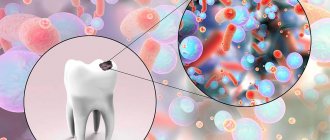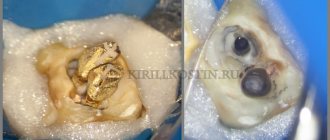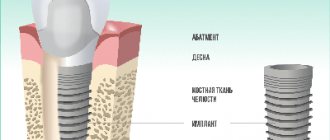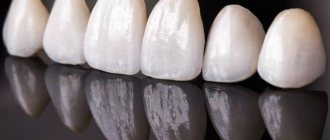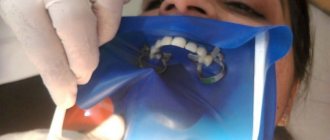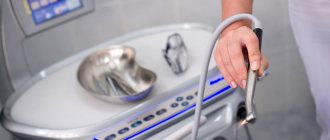Treatment with medications
The liquefaction process must be complex - first of all, it is necessary to eliminate the main cause of the pathology. In addition to this, the doctor prescribes medications. They use tools that perform the following functions:
- mucolytic;
- reflex;
- resorptive.
Mucolytic drugs thin saliva without increasing the amount of saliva produced. With their help, you can activate the process of removing phlegm. Such medications include Mucaltin, Bronchicum, Linkas, Ambroxol.
Reflex medicines stimulate nerve endings and help normalize the respiratory process. Such drugs cause muscle contraction, which helps clear mucus from the respiratory organs. Used in combination with mucolytic agents. Reflex drugs include Alteyka, Stoptussin, Thermopsol.
Resorptive agents have a local effect on sputum and dilute it, but at the same time the volume of production increases. The drugs are made on the basis of potassium iodide, ammonium chloride, sodium hydrochloride. Not suitable for treating young children.
In cases where the exact cause of the increased level of viscosity has not yet been established, but the symptom causes discomfort to the patient, you should consult a dentist.
Such treatment will be symptomatic and its main goal is to restore the optimal consistency of the salivary fluid. The use of sprays and gels to moisturize the oral cavity and drinking plenty of fluids are recommended. To better stimulate the functioning of the salivary glands, dentists recommend chewing gum (without sugar) after each meal.
Auxiliary methods of treatment can include inhalation, rinsing, washing, compresses, rubbing, and breathing exercises.
If there is very thick saliva, sialostasis or sialadenitis (inflammation of the salivary gland), the dentist prescribes drugs that stimulate the salivary glands (Galantamine, Pyrogenal, Dimexide) and antibiotics (Erythromycin, Penicillin). In case of advanced disease, surgical intervention is recommended.
Prevention
You can prevent such an unpleasant phenomenon as viscosity and unpleasant taste of saliva if you follow the following rules:
- drink enough fluid (up to 1.5 liters per day);
- give up bad habits (smoking, alcohol);
- replace coffee with green tea;
- install a humidifier;
- eat right: increase the amount of vegetables, fruits, and grains you consume;
- rinse your mouth with water and salt;
- Visit your dentist regularly and promptly treat oral diseases.
Increased viscosity of saliva indicates the presence of health problems. Often these problems can be quite serious. Therefore, you should undergo a full diagnosis and establish the exact cause. This is where treatment begins.
You cannot prescribe medications for yourself - this must be done by a doctor. Do not overuse traditional medicine recipes: incorrect proportions of raw materials can cause an allergic reaction and aggravate your health condition.
What happens when there is insufficient saliva production?
According to statistics, every fifth adult is diagnosed with xerostomia, or dry mouth. This condition is caused by the fact that a person has reduced or completely absent saliva production. Since this biofluid performs a number of important functions, with xerostomia negative changes occur in the oral cavity:
- discomfort occurs;
- the level of hygiene of teeth and gums decreases;
- Due to a lack of saliva, the pH of the oral cavity decreases, microbes actively multiply in the mouth, and dental caries may begin to develop.
Main reasons
Malfunctions of the salivary glands are usually attributed to the following reasons:
- mumps, Mikulicz's disease, sialadenitis, sialostasis are diseases of the salivary glands, in which the glands themselves increase in size, become painful, and the amount of saliva secreted decreases;
- mucoviscitosis is a congenital disease that affects the exocrine glands;
- scleroderma - in addition to the secretion of saliva, the connective tissue of the mucous membranes grows;
- with a lack of vitamin A, the volume of epithelial tissue increases, thereby clogging the ducts of the salivary glands;
- damage to nerve endings in the head and neck area;
- injury to the salivary glands;
- HIV infection.
Folk remedies
Taken 4 tbsp. l. crushed pine bark and needles are steamed with a liter of boiling water, then boiled for another 10 minutes over low heat, left to infuse for an hour. Dosage regimen: drink 2 tbsp. l. three times a day. It is useful to lubricate the oral mucosa in the morning and evening with a mixture of propolis tincture and peach oil. Combine ½ tbsp. l. aloe juice and honey, take the medicine 1-2 times a day.
If the patient constantly experiences increased viscosity and stickiness of saliva, it is recommended to visit a dentist for diagnosis and treatment.
Diagnostics
Determining the source of saliva viscosity is carried out using the following diagnostic methods:
- examination and medical history - the doctor carefully examines the abdomen, neck, lymph nodes and thyroid gland;
- conducting a general and biochemical blood test, bacterial culture of sputum;
- listening with a stethoscope;
- pharyngoscopy examination of mucous membranes;
- studying the condition of the larynx using laryngoscopy;
- if pathologies of the nasal structure are suspected, radiography is prescribed;
- checking the condition of the gastrointestinal tract using ultrasound and FGS.
In some cases, you may need the help of highly specialized specialists: a neurologist, otolaryngologist, oncologist, endocrinologist or gastroenterologist.
Ph meter
This device allows you to measure acidity at home. It is believed that it does not have high accuracy, but it is inexpensive and convenient to use. The cost of a Ph meter depends on its characteristics. In particular, you should pay attention to the measurement range - from 0.00 to 14.00. In addition, indicators such as operating temperature, device division value, and accuracy are important. When purchasing, it is worth considering that the device must be calibrated.
What is the sequence of steps to determine the acidity of saliva, urine, blood or other liquids at home using a Ph meter:
- it is necessary to remove the protective cap at the bottom of the device body;
- turn on the device (move the slider to the right);
- immerse the Ph-meter up to the grooved mark in the liquid whose acidity is to be tested (in this case, in mixed saliva);
- read the readings after they have stabilized.
After each measurement, it is necessary to thoroughly rinse the electrode of the device with distilled water. As soon as the manipulations are completed, wipe the device dry with a napkin and put on the protective cap.
Important! To obtain reliable data, it is recommended to measure the acidity of saliva at least 5–8 times a day.
Measurement methods
Litmus paper is a tool that allows you to determine the pH of saliva in the mouth both in the laboratory and at home. Such test strips can change color in the presence of alkalis and acids. The environment, accordingly, can be neutral, alkaline, acidic.
Important! Using litmus strips is very simple - just dip the strip in the desired solution for 2-3 seconds and compare the resulting shade with the scale.
How to use a litmus test strip should be read in the instructions
An acidic environment is considered when Ph is less, alkaline - more than 7. Indicator paper can have different forms, sold in the form of strips, boxes, rolls, pencil cases, tubes. It is noteworthy that universal litmus strips are used exclusively for determining Ph values over a wide range (accuracy - up to 1 unit or tenth).
Causes of sticky saliva in the throat
Saliva can not only foam, but also seem to get stuck in the throat. In this case, it is necessary to examine an ENT doctor for damage to the tonsils and larynx. Purulent forms of tonsillitis or tonsillitis are accompanied by the appearance of plaques on the tonsils, which create discomfort and pain, and when opened, they release purulent contents into the pharynx, increasing the saturation of sputum.
Gum disease accompanied by the discharge of pus may also be an explanation for why saliva has become thick, viscous and felt in the throat. Such diseases include periodontitis, periodontal disease, cysts, cellulitis and abscesses. Sticky pus from the affected areas of the gums mixes with saliva and makes swallowing difficult.
